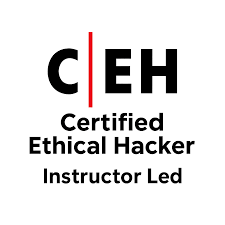Palo Alto Training – Learn Palo Alto Firewalls in 2025

In today’s hyper-connected digital world, cybersecurity has become a cornerstone of protecting data, privacy, and critical infrastructure. From financial institutions and healthcare systems to government databases and everyday smartphones, cyber threats are constantly evolving. Amid this growing threat landscape, ethical hacking has emerged as a vital practice to safeguard digital systems. Ethical hacking is not […]

In today’s hyper-connected digital world, cybersecurity has become a cornerstone of protecting data, privacy, and critical infrastructure. From financial institutions and healthcare systems to government databases and everyday smartphones, cyber threats are constantly evolving. Amid this growing threat landscape, ethical hacking has emerged as a vital practice to safeguard digital systems. Ethical hacking is not just about probing systems—it’s about building trust, maintaining integrity, and ensuring that technologies are safe for everyone.
Ethical hacking, also known as white-hat hacking, involves legally and deliberately probing networks, systems, and applications for security vulnerabilities. Unlike malicious hackers (black hats), ethical hackers operate with the consent of the system owners and work within a legal and ethical framework. Their mission is to identify security flaws before they can be exploited by cybercriminals.
Ethical hackers use the same tools and techniques as malicious hackers—but their goal is to help organizations strengthen their defenses. This process is known as penetration testing, and it’s a key component of proactive cybersecurity.
The main goal of ethical hacking is to discover system weaknesses before they become a threat. By simulating real-world attacks, ethical hackers can uncover vulnerabilities in software, hardware, or human behavior. Once identified, organizations can patch or fix these issues, preventing potential breaches.
Data breaches and ransomware attacks can cost organizations millions in damages. Apart from the direct financial impact, companies also suffer reputational damage, loss of customer trust, and legal consequences. Ethical hacking minimizes these risks by proactively safeguarding sensitive information.
With rapid advancements in technology, new attack vectors appear constantly. Ethical hackers stay updated on the latest threats and can help companies evolve their security strategies. Regular penetration testing and audits ensure that security measures remain robust over time.
Many industries, such as healthcare (HIPAA), finance (PCI DSS), and government sectors, have strict regulatory requirements regarding cybersecurity. Ethical hacking is often required to demonstrate compliance. Failing to meet these standards can result in penalties and business restrictions.
Ethical hackers not only detect vulnerabilities—they also test how organizations respond to attacks. These simulations help improve incident response plans and ensure that teams know how to act swiftly during a real breach.
Ethical hackers follow a structured approach during penetration testing. Some common stages and techniques include:
These steps mimic real-world attack scenarios, providing valuable insight into how an organization can be compromised—and how to prevent it.
With the demand for cybersecurity professionals skyrocketing, ethical hacking has become a promising career path. Key certifications that validate ethical hacking skills include:
These certifications provide credibility and open doors to roles in penetration testing, red teaming, threat analysis, and security consulting.
While ethical hacking is essential, it must always be carried out responsibly. Key ethical considerations include:
The line between ethical and unethical hacking can be thin, so adhering to industry standards and legal frameworks is critical.
Ethical hacking is a powerful weapon in the fight against cybercrime. As digital threats grow more complex, organizations need proactive defenders who can think like attackers—before the real ones strike. By simulating attacks, identifying weaknesses, and helping to build resilient systems, ethical hackers play a crucial role in securing the digital world.
Cybersecurity is no longer optional—it’s a necessity. And ethical hacking is one of the most effective ways to stay one step ahead.
Get certified with industry-leading cybersecurity certifications from EC-Council, PECB, Palo Alto Networks, and more.

Learn from world-class instructors Collaborate with top professionals Advanced training...

The CEH is the world's leading cybersecurity certification, recognized by...

Onsite training course Led by an instructor Interactive sessions

Asynchronous, self-study environment Video-streaming format Flexible learning schedule
Adding {{itemName}} to cart
Added {{itemName}} to cart

